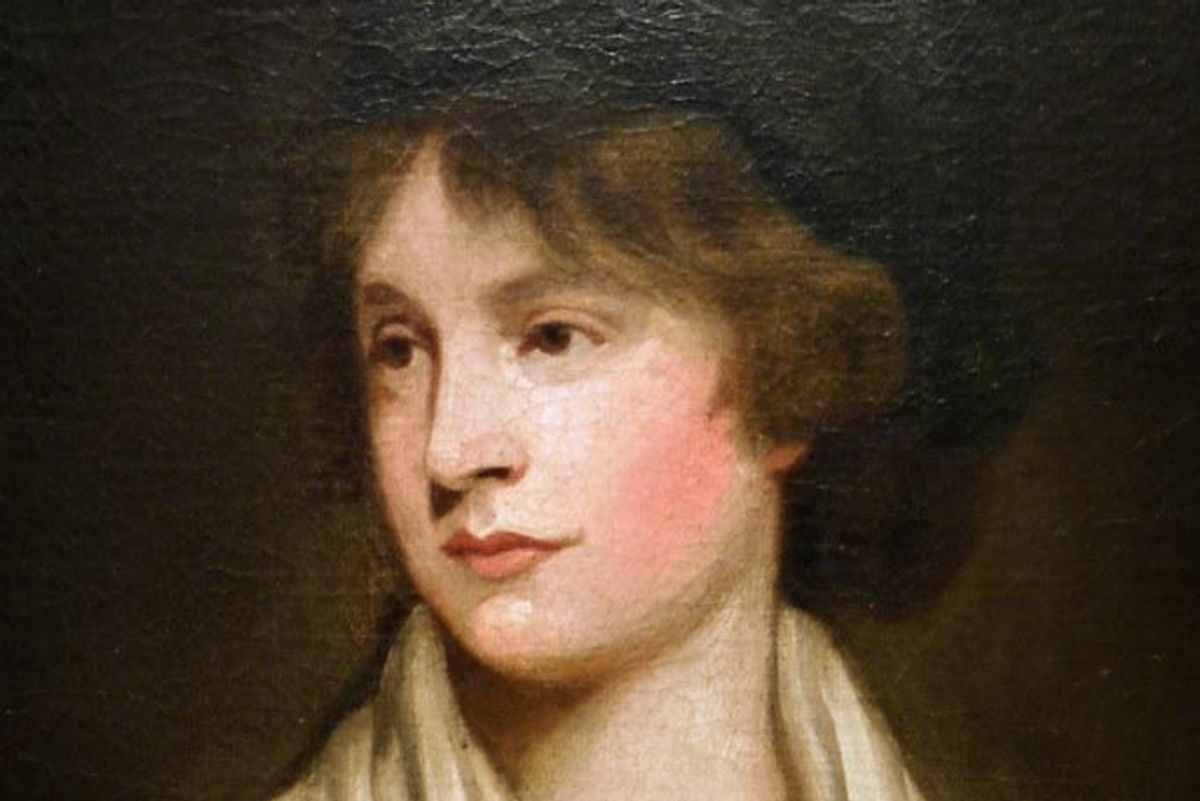
Mary Wollstonecraft is considered by many to be the founder of feminism. Her book, titled “A Vindication of the Rights of Woman,” was groundbreaking for challenging the notion that women existed for the sole purpose of pleasing men, and its philosophy is still the heartbeat pulsing through the women’s movement.
Wollstonecraft died only days after giving birth in 1797, but not before bestowing one last piece of advice to her baby girl. And it’s wisdom that every daughter deserves to hear.
“Death may snatch me from you, before you can weigh my advice, or enter into my reasoning: I would then, with fond anxiety, lead you very early in life to form your grand principle of action, to save you from the vain regret of having, through irresolution, let the spring-tide of existence pass away, unimproved, unenjoyed. — Gain experience — ah! gain it — while experience is worth having, and acquire sufficient fortitude to pursue your own happiness; it includes your utility, by a direct path. What is wisdom too often, but the owl of the goddess, who sits moping in a desolated heart.”
According to The Marginalian, the words come from another book Wollstonecraft had been brewing as a follow-up novel to Vindication, meant to take on a more personal tone. Her words indicate that Wollstonecraft knew the end could be approaching, making her message all the more bittersweet.
In our modern era, this passage might not seem all too radical. Gain experience, pursue your own happiness. Got it, we’ve heard it before. But the fact that Wollstonecraft encouraged self-mastery to her daughter—in a time when a woman’s fate was decided wholly by men—is what makes it so remarkable. Wollstonecraft inherently knew the value of empowering women, and wanted her daughter to have the same inner knowing.
She also wanted her daughter to come into this world with the knowledge that she is, and always will be enough. She writes how remembering that will help ensure a happy life.
“Always appear what you are, and you will not pass through existence without enjoying its genuine blessings, love and respect.”
Wollstonecraft’s words—and her feminist principles—would continue to live on through her daughter, Mary Shelley, who went on to write “Frankenstein,” giving the world its first taste of science fiction.

Scholars have noted how Shelley’s iconic novel is, in its own right, a feminist novel. Primarily for the way Shelley criticized how females and femininity had been devalued by a male-driven science community in patriarchal society. I mean, the bride of Frankenstein was torn to pieces … so …
Like her mother advised, Shelley rebelled against convention in favor of pursuing her own path. And not just in her career, either. In fact, both mother and daughter had passionate counterculture romances that warranted a rather spicy double biography.
The Marginalian adds that little Mary Shelley learned to read by tracing the letters of her mother’s gravestone, and really only came to know her mother through her work. It’s a bittersweet, yet touching image. The words of her late mother clearly resonated and shaped her identity.
It seemed Wollstonecraft’s dying wish was to instill within her daughter a fiery independence that couldn’t be squelched. If that’s the case, she succeeded, and her words continue to inspire women everywhere to enjoy (even fight for) the genuine blessings of being exactly who they are.
